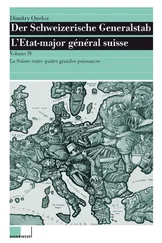My name is Bobo, he said. We mean no harm. We were sent here by a friend of yours. He wanted to make sure you get the best medical help possible for your injuries.
Funny, Alain said. I feel fine.
But your leg, sir.
Alain’s leg was indeed getting worse. Walking hurt more than usual. And now that Alain had finally washed himself, the funny smell coming from his knee seemed more ominous. Gangrene, possibly. Like in “The Snows of Kilimanjaro.”
Who’s this friend of mine who sent you? Alain said, though he’d kind of guessed his benefactor-enemy’s identity already. What’s with the guns? Friends don’t threaten to shoot friends where I’m from.
The guns are a simple precaution, sir. Your benefactor is an important man who would rather remain anonymous for the moment. Please come with us now. All will be explained to you in the car.
Is that so? Where would you be taking me for treatment?
Miami, sir.
Despite his common sense, Alain laughed in Bobo’s face.
Jackson Memorial Hospital!
If that’s the nicest hospital in Miami, then yes, sir, that would be correct.
I haven’t been there in years. It is a nice hospital, but there are better ones. All right, Mr. .. what did you say your name was again?
Bobo.
Bobo. Of course, Mr. Bobo. The leg is probably killing me, so I will happily take up your boss’s generous offer for help. Besides, I could use a break from Haiti, and Miami is especially nice in the winter. But I can’t leave with you right this moment.
Mr. Destiné. ..
Don’t get me wrong, Mr. ..
Bobo.
Right. Bobo. Sorry, I’m terrible with names. I’m not being a smartass. It’s just that I have an immediate engagement. See that man over there? Not the white man, though I’m sure your boys here recognize him. The man next to him, the one in the red suit. He is about to get married now, and I’m his best man.
A wedding? Here?
I know the refugee camp leaves something to be desired when it comes to glamorous occasions. The wedding will take place at the cathedral. Isn’t that great?
But the cathedral was heavily damaged by goudou-goudou. Isn’t holding a ceremony there dangerous?
Bobo, my man, isn’t love dangerous anywhere? Look where it’s got me!
Bobo almost smiled. His gunmen grinned.
Alain didn’t know where the big balls he was displaying had come from. Was a death wish still lurking in his subconscious even though he was convinced the bonhomie of Place Pigeon had helped him out of his depression? He pressed on.
Fellas, I can’t leave with you now, because my absence would draw a lot of attention your way, and I’m sure you don’t want that. Around twenty thousand people are coming to the wedding. Basically everyone around you is invited. They would notice the absence of the best man. So here’s what I propose: Why don’t you guys come to the wedding with me as my guests? Afterwards, you can take me to the airport for a one-way trip to Miami. I could use a vacation. It is a one-way flight, isn’t it?
I’m afraid so, Bobo said.
Perfect! Alain said. It’s settled.
I have to double-check with my boss, but yes, I think this should work.
Have your boss meet us at the cathedral! He’s invited too. And why not? We are going to celebrate the love of a man and woman before God. I have a feeling your boss is a fan of such events.
Bobo and the guys looked at Alain like he was nuts, then they looked at each other to confirm that, yes, the guy was crazy but not much of a threat or a flight risk. He could barely walk, much less run. D’accord , Bobo said.
Put those away then, Alain said, pointing to the guns. Come with me.
And come they did, following Alain to his tent, graciously accepting introductions to Philippe, Hollywood, and Xavier as acquaintances of Alain’s who happened to be in the neighborhood. Xavier gave them the side-eye. He suspected something bad was going on. Xavier tossed Alain a look that said, I hope you know what you’re doing, and Alain nodded yes, he did. Meanwhile, the fat guy, Bobo, was on a BlackBerry, typing furiously. His BlackBerry beeped right back, startling the big guy, who, in turn, startled everyone around him.
Everything all right? Hollywood asked Bobo.
Yes, he said. Looking at Alain, Bobo said, Our friend will indeed join the ceremony, by the way. He was in the neighborhood.
Briefly, a look of absolute terror passed across Alain Destiné’s face.
Not far away, on the corner of rue Borgella and rue Montalais, the president of Haiti was fuming in a limousine. He was sitting still, not moving forward fast enough, something he’d grown to hate doing much of since goudou-goudou. Cedric, how much longer are we going to sit out here? he said to the driver. I’m not getting any younger, you know. His limousine had been stuck in traffic making the short drive from the Champ de Mars plaza to the National Cathedral for over an hour. The thick crowds filling the streets on this earthquake victims memorial day were indifferent to his plight, and the President began feeling like the car was some sort of prison cell. After all, he’d started the day by spending a couple of hours stuck in traffic on his way to the Champ de Mars from the airport to make an appearance at the national memorial services. Mass grief had drowned out his speech. The crowd gave the impression of barely noticing he had made one. All their eyes seemed closed; their thoughts were elsewhere. Singing. Watching God, not another piddling politician. No doubt they were busy visualizing their lost loved ones and their own places in heaven next to them. Elysium fields and all that. On the podium, he was meant to appear humble and at one with them, but he struggled. He seemed beside the point, and the feeling made him uncomfortable. Who prays for me? he thought. Who weeps for me, huh? I’ve been working hard days and nights for you all. While you’ve been on your knees praying for help and begging for handouts, I’ve been working my ass off trying to make the help and handouts possible. Not all of them, but some of them. Most of them. It was difficult, lonely work. But gratitude rarely came his way. Not this day. And not ever, really. For not even his cabinet — kids he practically parented — could bring themselves to say Good job, Mr. President. Thank you, sir. No, all they could do after he walked out of one of those endless, if successful, meetings with narcissistic foreigners, feckless local businessmen, overbearing journalists, and angry mayors, begging for aid, patience, coordination, generosity, and communality, was give him a look that said, If that’s the best you can do, it’s not enough, but we’ll make do. Then they went about their business. They moved on to the next item on their agenda for him. Sitting in the backseat of a car that should feel good, since it was air-conditioned and the heat outside was no joke, the President shook his head. You should feel better about your lot, man. Why can’t you? This is your finest hour as a human being and a public servant, and you can’t appreciate it. Your wife will. She gets your challenges. She gets you. She gets how much you love your people, and how hard you work for them. Journalists who cozy up to you claim they get it, swear they get it, occasionally report about it like they get it. But they don’t get it. How can they? How can they understand what its like to be a leader who constantly has to negotiate on behalf of a resource-free yet proud people with the resourceful and haughty? Heads, you lose. Tails, you lose. Scientifically anyway. As my beloved Natasha helped me see, my job is an art, not a science, and in art, you are never wrong, you never lose, your existence makes you a winner, your work is victory herself. Sure, there was a marketplace, and there were critics — where aren’t there critics? — and reputations could be constructed and made golden, and golden reputations unspooled purse strings, but the artist was never wrong; neither was she often right; but that was not the point of art, art existed in a place beyond right or wrong, rich or poor; so does life, for that matter, in many ways, if the Bible or Haitian history is to be believed. The point of art, as Natasha saw it, in music, poetry, painting, sculpture, architecture, literature, film, was to be there. To exist. To have been born and held. To have been nursed and breast-fed.
Читать дальше












